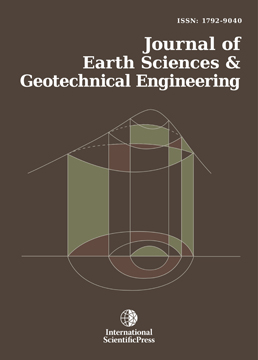Journal of Earth Sciences and Geotechnical Engineering
Impact of engine warm-up and DPF active regeneration on regulated & unregulated emissions of a Euro 6 Diesel SCR equipped vehicle
-
 [ Download ]
[ Download ]
- Times downloaded: 12884
-
Abstract
The latest improvements achieved thanks to stringent regulations, Diesel engine design and control developments or after treatment evolutions, contribute to the global reduction of Diesel vehicle emissions. This study proposes an extensive assessment of the gaseous and particulate emissions of a Euro 6b Diesel vehicle equipped with a DOC+SCR+DPF exhaust line, under different transient driving conditions reproduced on a roller test bench. It highlights the negative impact of engine warm-up and DPF active regeneration on the regulated and unregulated gaseous and particulate emissions of this vehicle, in particular:
• Engine cold starts and warm up lead to HCs, CO, CO2, N2O and CH2O emissions global increase (the two first however remaining compliant with their related emission limits), as well as higher particle number (also under Euro 6b limit),
• DPF active regenerations lead to more important HCs, CO, CO2 and CH2O emissions, to dramatic NH3, SO2 and particle number (PN) increase; these procedures are also characterized by significant HCN emission and nucleation particles formation.
It finally tackles the need to further improve the related after-treatment’s efficiencies, as well as to consider additional pollutant emission limits for passenger cars for the future standards.
